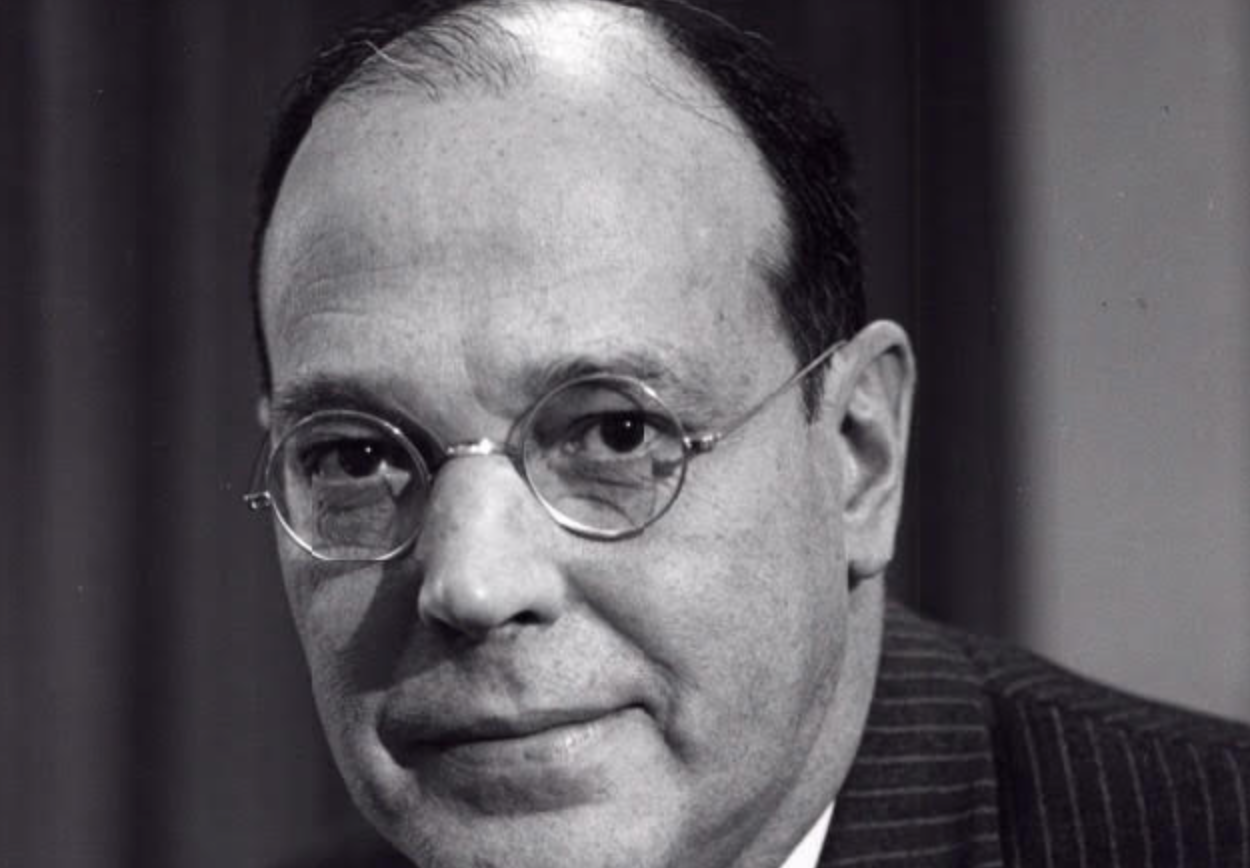As we approach Father’s Day, I find myself thinking about my own father. He has been gone nearly thirty-six years now so there are some shadows in my memory, but all in all, he’s still there: quiet, kind and gentle; generous to the point of indulgent; resolute, dutiful but always humble; honest and trustworthy. A man at peace with himself and the world around him.
 He was born on New Year’s Eve,1906 in his family’s clapboard home in Renfrew, a tiny dot on the map in western Pennsylvania. He was a young boy when his family—he was the youngest of seven children—moved a few miles over the mountain to Butler, an only slightly larger dot on the map. He graduated from Allegheny College, then somehow made the momentous leap to Harvard Law School. In 1932, by then with my mother at his side, he returned to Pittsburgh to start his law career. A few years later when the the war began, he joined the Army and moved his young family (mother and my three older siblings) to Washington where he helped to plan the invasion of Japan that (thankfully) never occurred.
He was born on New Year’s Eve,1906 in his family’s clapboard home in Renfrew, a tiny dot on the map in western Pennsylvania. He was a young boy when his family—he was the youngest of seven children—moved a few miles over the mountain to Butler, an only slightly larger dot on the map. He graduated from Allegheny College, then somehow made the momentous leap to Harvard Law School. In 1932, by then with my mother at his side, he returned to Pittsburgh to start his law career. A few years later when the the war began, he joined the Army and moved his young family (mother and my three older siblings) to Washington where he helped to plan the invasion of Japan that (thankfully) never occurred.
Following the war, he returned to Pittsburgh, started his own practice, now the mega international firm of KL Gates. When I arrived on the scene in 1948, he was already 41 (mother was a year older), so I was raised as the caboose of the family train, a fact of my life with its own set of distinct advantages and disadvantages. The good news was that I often had my parents to myself, but there were times when my siblings were away at school that I often felt a bit lonely and left behind. Still, my childhood memories are bright.
My father and I were close, up to a point. We played golf together and often went to Forbes Field to watch the Pirates play baseball. As I entered my teens, I grew restless and because my siblings were all out of the nest, I thought I should be, too. So I went to boarding school, another fact of my life with its own set of advantages and disadvantages. I loved the connections I forged at school, but at the same time, I severed my connections to Pittsburgh. Way led on to way—college, Peace Corps, my career in Washington—and so the hills and rivers of my hometown faded away to be replaced by the great world beyond. I stayed in touch with my parents, and from time to time visited them at High Meadow, their cherished weekend retreat in the Laurel Highlands, but I watched them grow old from afar.
My father’s health began to decline. He died in 1987 at the age of 81. These days that’s relatively “young,” but even more worrisome to me is the fact that I’m closing in on that very horizon. I know nothing is writ in stone, but the mile markers come more quickly now and I wonder if my father felt the same quickening pace, too.
I never called my father “Dad.” I don’t remember how I addressed him when I was a little boy, but later on, I do remember calling him “Pappy” from time-to-time. When his first grandchild arrived (I was only 6 at the time), she had the honor of bestowing his grandfather name. It was “Kirkie” and forever after, that’s what we all called him.
The territory of fathers and sons is a mysterious island, steeped in the mists of time. Its coastline has plenty of safe coves and rocky shoals, high cliffs and sandy beaches. I know that no father is perfect, but I was blessed. My father was a good and admirable man, worthy of emulation. I live in his shadow.
I’ll be right back.
Jamie Kirkpatrick is a writer and photographer who lives in Chestertown. His work has appeared in the Washington Post, the Baltimore Sun, the Philadelphia Inquirer, the Pittsburgh Post-Gazette, the Washington College Alumni Magazine, and American Cowboy Magazine. His new novel “This Salted Soil,” a new children’s book, “The Ballad of Poochie McVay,” and two collections of essays (“Musing Right Along” and “I’ll Be Right Back”), are available on Amazon. Jamie’s website is Musingjamie.net.



Write a Letter to the Editor on this Article
We encourage readers to offer their point of view on this article by submitting the following form. Editing is sometimes necessary and is done at the discretion of the editorial staff.